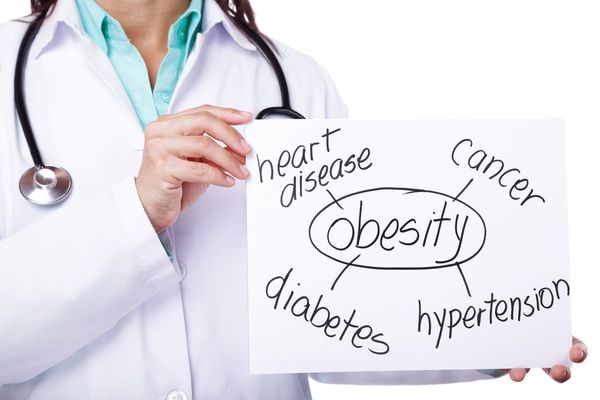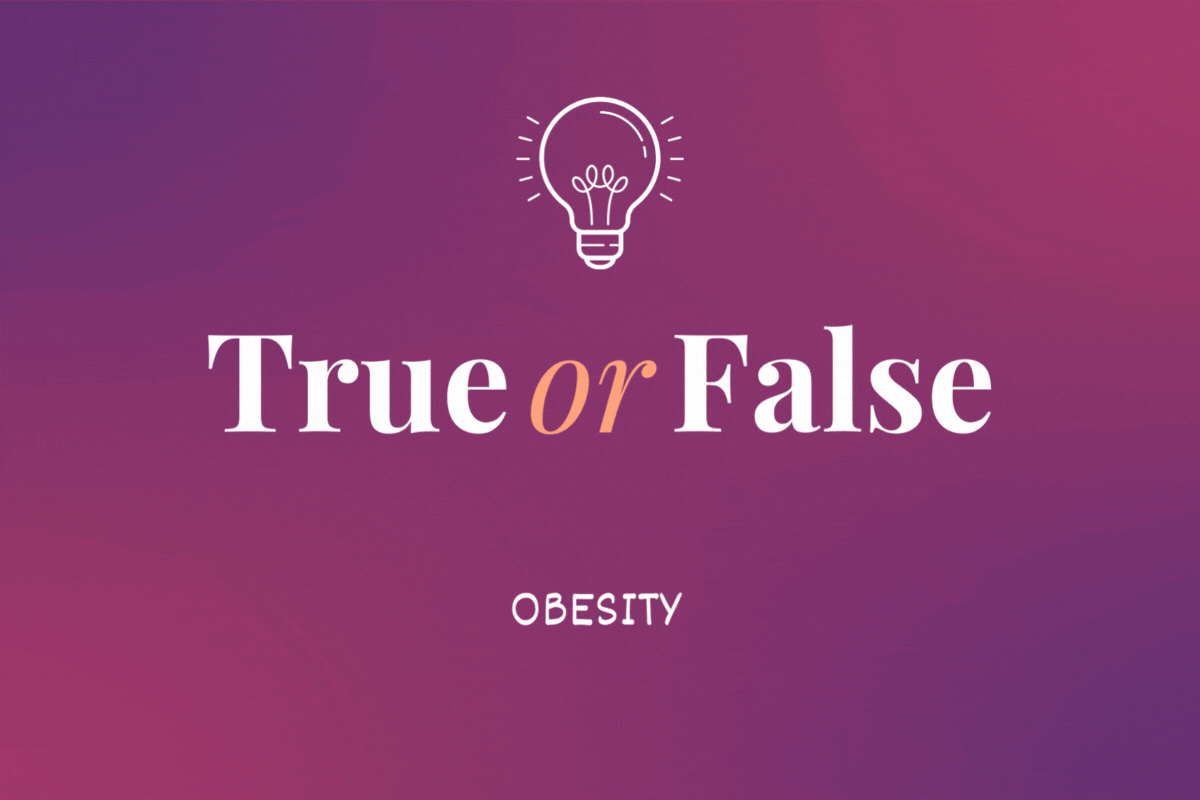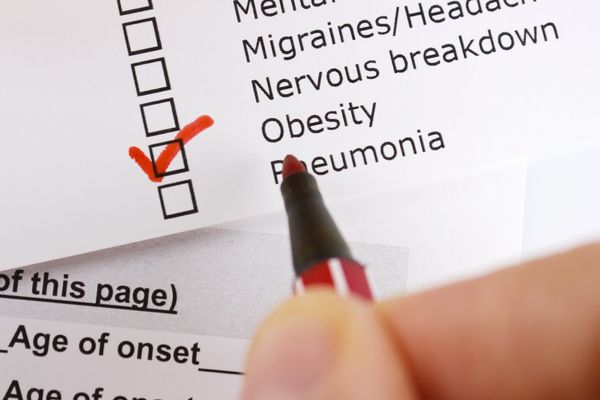This story is part of HealthyWomen's Reclaim Your Wellness partnership with Black Women's Health Imperative.
Reviewed by Ariana Chao, Ph.D.
Ten years ago, Kimberly Rainey was afraid to step on the scale. She knew she had been gaining weight — food had become her coping mechanism during an abusive marriage — but seeing the number on the scale would be yet another stressor she wasn't ready to handle.
"There's often a root cause for weight gain," Rainey said. "For me, I was dealing with so much abuse at home. I was hiding it, and I found solace in food. Too many of us lie to ourselves and others and say we're OK, when we're not."
Rainey heard similar stories from women struggling with their weight when she created Team Curvy and Healthy, an advocacy network for women looking to lead healthier lifestyles while loving themselves and their bodies, no matter their size. Weight gain was often intertwined with traumatic experiences, stress, depression and other mental health challenges. Rainey would share healthy recipes and exercise tips with the group and also encouraged women to take care of their mental and emotional health as part of their weight loss efforts.
In fact, a growing body of research is finding connections between stress, mental illness and weight gain. A 2017 U.K. study illustrated how exposure to elevated levels of cortisol, a stress hormone, correlated with weight gain and retention. The findings from such studies could be beneficial to international efforts to manage a growing obesity crisis.
Health risks of obesity
Obesity — defined as a body mass index greater than or equal to 30 — has nearly tripled worldwide since 1975, according to the World Health Organization. In early 2020, the CDC reported that adult obesity rates had topped 40% for the first time, with 42.4% of all American adults living with obesity.
The obesity epidemic has far-reaching health implications, as excess weight can increase the risk of coronary heart disease, end-stage renal disease and other complications. The Covid-19 pandemic has intensified the focus on obesity as a health crisis, as higher rates of obesity have been found in patients who were hospitalized or died.
Black Americans had the highest rate of obesity (49.6%) among all racial and ethnic groups in the 2020 CDC figures, and Black women had the highest rate of obesity of all racial and gender groups at 56.9%. Researchers have taken a closer look at the long-term effects of racism and systemic bias on physical and mental health and made connections between Black women's higher rates of heart disease, hypertension, diabetes and other conditions triggered or worsened by obesity.
During the "Reclaim Your Wellness" webinar hosted by HealthyWomen and The Black Women's Health Imperative in February 2021, Dr. Fatima Stanford, an obesity medicine physician at Massachusetts General Hospital, explained just how consequential this can be.
"Issues such as systemic and structural racism actually lead to increased rates of storage of adipose tissue in Black women. This was actually seen in data that was published out of the Black Women's Health Study, which comes out of Boston University Medical Center. Dr. Yvette Cozier actually looked at exposures, either everyday racism or lifetime racism, to discern whether or not that actually contributed to obesity. And the stress associated with exposure to racism, either every day or over the course of a lifetime, actually leads to more storage of adipose or fat."
"For women of color in lower socioeconomic brackets, there's often higher levels of stress and higher risks of traumatic experiences, all of which can play out with higher incidences of obesity and weight gain," said Scott Kahan, director of the National Center for Weight and Wellness and a spokesperson for The Obesity Society.
While a healthcare provider can offer advice and assistance to help patients lose weight, that doesn't always lead to positive results if the provider also doesn't address the mental and emotional factors associated with a person's relationship with food.
"As physicians, we get almost no training in weight management and nutrition, and a doctor often doesn't have much to offer in this area," Kahan said. "A doctor can make it worse sometimes with assumptions about a patient's weight. Hopefully patients can find an insightful primary care [provider] who can be supportive and encourage them to get help from a mental health care professional to manage weight, get past depression and trauma and just feel better."
Michelle Toussaint, a clinical health psychologist, is part of the team helping patients address the mental health barriers to weight loss at the National Center for Weight and Wellness. She said providers must be willing to listen to their patients, be open to asking questions and respond with compassion and empathy.
"Most people struggling with obesity also struggle with negative self-talk — for example, after getting overwhelmed with work and not having time to exercise, our minds may go to 'I did it again! I just messed up my weight loss plan. I'll never lose weight, I don't even deserve to,'" Toussaint said. "This is why the typical stern responses that many doctors or others feel will be 'motivating' end up backfiring."
A wellness journey
Rainey hid her abuse from the world as she watched her weight climb to 282 pounds. After one final harrowing experience with her husband, she mustered the courage to divorce in 2011 and started on the path toward healing. A diagnosis of prediabetes that same year also motivated her to change her life.
Every day she vowed to walk for 30 minutes, even if she didn't get very far. She began to cover more ground in that half hour and eventually started lengthening her walks. She also saw a therapist to help process her trauma as she worked to get back to a state of mental and physical health. Within a year, she'd lost 90 pounds. Ten years later, she's still down 82 pounds from her highest weight.
While Rainey is proud of her weight loss and maintaining a healthy lifestyle, she feels her most significant accomplishment is overcoming chronic stress and trauma to create a new life for herself and her children. Her weight loss journey is ongoing, and she focuses more on mental and physical wellness than a number on the scale.
"I tried to be the person I needed when I started my weight loss plan," Rainey said about her online platform. "Then, I shifted my platform from weight loss to whole health because I wanted to help Black women overcome the stigma of going to therapy and seeking help. I'm a huge advocate for taking care of your mental health.
"One thing I always want to tell women is that you have to be able to look at yourself naked and be OK with that woman you see," she said. "And it's not just naked physically. When you strip down all your emotions, when you go through your highs and lows, can you look at the woman in the mirror? Nobody wants to admit they don't have it all together, but when you can strip away all pretense, then you can look at yourself and be happy with who you are."
This resource was created with support from Novo Nordisk







